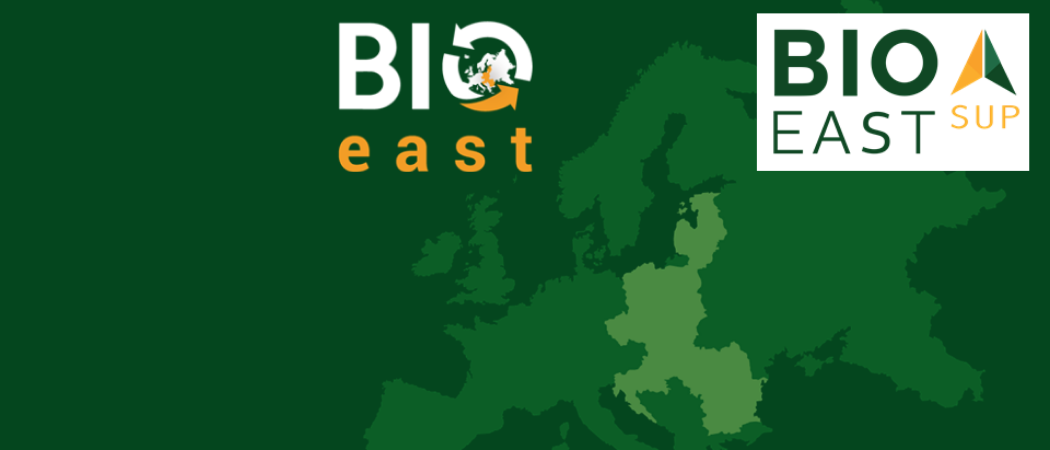Advancing a sustainable circular bioeconomy in central and eastern European countries

Research and innovation in the bioeconomy, including agriculture, is taking centre stage. The Common Agricultural Policy (CAP) for the 2021-2027 period is going to be accepted by the member states with a strong focus on knowledge and innovation, including a specific objective on bioeconomy related investments. Moreover, the first work programme of Horizon Europe, under the so-called Cluster 6 on bioeconomy, is running with a record high budget of almost €2 billion.
Advancing sustainable and circular bioeconomies in central and eastern European (CEE) countries is one of the major objectives of the five year-old BIOEAST Initiative, which is an open initiative of the Visegrad Group Countries’ agricultural ministries. The governments of the Czech Republic, Hungary, Slovakia, and Poland started the cooperation in 2016. Bulgaria, Croatia, Latvia, Lithuania, Estonia, Romania, and Slovenia have since joined them.
The world has changed since the BIOEAST countries first planned to modernise their agriculture and food systems when they began to join the EU 17 years ago. A new systemic and cross-sectorial context is prevailing in which the major driving force is sustainability and circularity underpinned by a strong research and innovation push. With only moderate support for innovation at the political and the policy level in the BIOEAST countries (spending on research and innovation is well below 2% of GDP), market players are not ready for this shift, yet.
Without specific national programmes on research and innovation and economic development in bioeconomy, and the promotion of already-available solutions, the transition to a sustainable footing will be difficult. While political decisions are rightly driven by the ongoing market reality around competitiveness, the BIOEAST Initiative aims to gradually encourage a new interpretation of the current paradigm and prepare for the future challenges on sustainability.
Although central and eastern European countries negotiated the Common Agricultural Policy (CAP) with a view to modernising their agri-food systems, the modernisation of this sector has yet to happen. Ever since the EU accession, their participation in excellence-based science has been stagnating: the BIOEAST countries’ aggregate share in the EU Framework Programme Horizon 2020 was below 5.7%. Without national strategies and action plans to help the bioeconomy, there is limited scope for the deployment of new technologies.
Boosting the bioeconomy at different levels
The BIOEAST Initiative aims to support the deployment of the bioeconomy at macro-regional and national levels. The role of the initiative is well recognised by the European institutions; the EU Bioeconomy strategy referred to it in its action plan, and in the Council Conclusions on Bioeconomy and on the Farm to Fork strategies.
The European Commission has even financed a Coordination and Support Action, called BIOEASTsUP, and a policy support facility with a mutual learning exercise between the different member states. Involving 24 scientific and policy institutions from 13 countries, BIOEASTsUP’s main goal is to support the BIOEAST Initiative by assisting the 11 CEE countries in the implementation of their Vision for 2030 and Action Plan for transition towards sustainable bioeconomies.
The main working body of the BIOEAST Initiative is the BIOEAST Board composed of the secretary general and national contact points from agricultural ministries. BIOEAST thematic working groups were established to support the work of the BIOEAST Board in specific strategic areas: agroecology, forestry, food system, fresh water, bioenergy, biochemistry, and education. The BIOEAST Initiative is a policy initiative, hence only the ministerial bodies can become members. The policy and scientific communities have also been mobilised, and now it is high time to advance to the stakeholders’ level engagement, by mobilising market actors at a local level.
National BIOEAST HUBs gather the national stakeholders and support their engagement. The first one was established in the Czech Republic with the support of the Ministry of Agriculture.
A macro-regional approach of combining funds in a common pot for a well-funded strategic research and innovation agenda (SRIA) could help mobilise the scientific community, raising the attention of market actors and private funds, and focusing the political agenda on biomass-driven economies. A common macro-regional SRIA is under preparation, and the BIOEASTsUP support action is helping the process to assess the stakeholders’ needs in the BIOEAST countries.
The BIOEAST Initiative aims to offer a common political commitment and shared strategic research and innovation framework for working towards circular bioeconomies in the CEE countries. The countries’ competitiveness will depend on how early they invest in research and innovation, which will define the key-enabling technologies of the future.
The transition towards sustainable bio-based processes requires special attention, both to bring about the modernisation of food and non-food related biomass-based sectors, and to enable the substitution of fossil-based carbon with renewable carbon in several industrial applications.
The BIOEASTsUP project has received funding from the European Union’s Horizon 2020 research and innovation programme under Grant Agreement No 862699
Reference links:
BIOEAST: www.bioeast.eu
Stakeholders database: https://bioeast.eu/description/
BIOEASTsUP project: https://bioeast.eu/bioeastsup/





 A unique international forum for public research organisations and companies to connect their external engagement with strategic interests around their R&D system.
A unique international forum for public research organisations and companies to connect their external engagement with strategic interests around their R&D system.